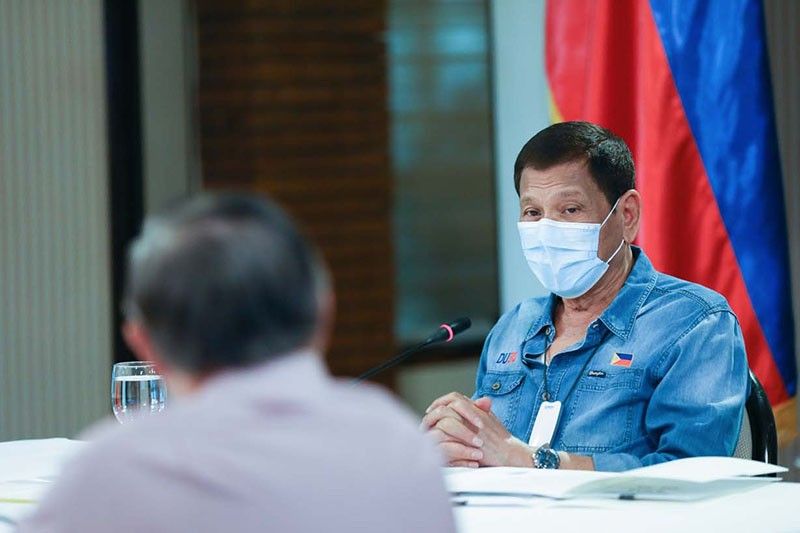Commentary: Looking back at past admin's governance reform, economic successes

Last week, I had the pleasure of running a virtual panel stacked with former cabinet members of late President Benigno Aquino III. Entitled Looking Back to Build Forward, Stratbase ADR Institute organized the virtual town hall discussion in partnership with the Ninoy and Cory Aquino Foundation. And the event was a timely discussion on the achievements of the Aquino administration and vital lessons for current and future public leaders.
We were indeed fortunate that during the discussion, former Cabinet members Secretary Albert del Rosario (foreign affairs), Secretary Babes Singson (public works), Secretary Manny Esguerra (economic), Secretary Butch Abad (budget and management), Secretary Rene Almendras (Cabinet secretary), and Secretary Ging Quintos-Deles (peace process) all came out to share their time and valuable insights on various issues.
As expected, the discussion that day touched on several important topics: foreign policy, economic reform, fighting corruption, the peace process and public-private partnership. However, I think Dr. Kiko Magno, trustee and program convenor of Stratbase ADR Institute, captured the key cross-cutting themes best in his closing remarks.
According to Magno, the eight key takeaways from the discussion were: 1) the importance of principled leadership; 2) governance reforms work well for economic success; 3) the importance of convergence programs for human capital development, social protection, and economic success; 4) the need to integrate data, key result areas, and systems analysis into government plans; 5) that true success is long-term and goes beyond political division, 6) that government should not be afraid to subject its platform or performance to international standards; 7) the rule of law, rather than persons; and 8) that institutions outlast personalities.
Indeed, many of his Cabinet secretaries attributed the Aquino administration's governance reform and economic successes to President Aquino's leadership.
For instance, former Department of Budget and Management Secretary Butch Abad said that Aquino's leadership and political will were vital to instituting change in government and restoring the people's trust in the public sector.
"I think the one critical factor was the leadership provided by a determined, knowledgeable, trustworthy and decent president, as exemplified by President Noynoy Aquino. I think he knew very well what to do, and we also knew how much power he had to be able to do these things", Abad said.
Our speakers also emphasized how the policies and programs of the Aquino administration were long-term, well thought out, focused on human capital development.
In his talk, former Cabinet Secretary Rene Almendras gave us a peek into the Aquino administration's planning process. "President Aquino had a key result area defined in his administration, and he would review with cabinet members their commitments, their performance on a very regular basis. This was all part of balancing the challenge of where do you put the money into economic development or into poverty development. No, we prepared a plan that said wherever you put the money in, it always resulted in human development, poverty reduction, economic development, and national development."
In addition, former Department of Public Works and Highways (DPWH) Secretary Babes Singson also shared the massive strides the country made in terms of infrastructure during the Aquino administration. Many of these projects, Singson said, were developed under the Public-Private Partnership program, such as the High Standard Highway Master Plan for Metro Manila and radius of NCR.
Furthermore, their infrastructure plans were also long-term. In fact, several Aquino-era PPP projects — such as Skyway Stage 3, NLEX-SLEX Connector, LRT-2 East Extension and Mactan Cebu International Airport's New Passenger Terminal— were all inaugurated by the current administration already.
Former Foreign Affairs Secretary and our Chairman, Albert del Rosario, also emphasized the Aquino administration's rule-based governance approach, especially in dealing with sovereign rights and security issues in the West Philippine Sea. "President Aquino believed that those who think "might makes right" have it backwards. It is exactly the opposite, in that right makes might," Del Rosario said.
In the week after the virtual town hall discussion, the headlines have been dominated by news of the Commission on Audit (COA) flagging the Department of Health and other agencies over billions of unspent funds that could have been used during this COVID-19 crisis.
President Duterte's reaction to these COA reports was to immediately scold the commission for simply doing its job. The reports also prompted the president to review and revive old audit reports from the previous administration to divert attention from the controversy he is now faced with.
By doing so, however, the Duterte administration also demonstrated that it has the time, is fully capable of, and is willing to look back at previous government's programs and policies.
Hopefully, as it does, it also picks up a few lessons along the way from the successes of the previous administration— especially when it comes to principled leadership, foreign policy, long-term planning, the peace process, anti-corruption and economic reform.
Indeed, this virtual town hall discussion could not come at a better time. In the words of Stratbase ADRi President Prof. Dindo Manhit, "By contrasting the practices, policies and results of the Duterte administration with those of the Aquino administration, we can extract valuable lessons for current and future leaders to build back better through the preservation and the promotion of a democratic way of life, a democracy with integrity and decency in government, public participation, transparency, and dynamism for social and institutional reforms."
"I believe that principled leadership, good governance, a dignified foreign policy is good economics. We need a reality check for all Filipinos and government leaders. In facing challenges, great leaders may be adventurous in their decisions and actions. But greater leaders decide by principle and confidently act through reforms. This is the political wisdom behind building back better that should enlighten us in the 2022 national elections," Manhit said.
Paco Pangalangan is the executive director of think tank Stratbase ADR Institute.
- Latest
























